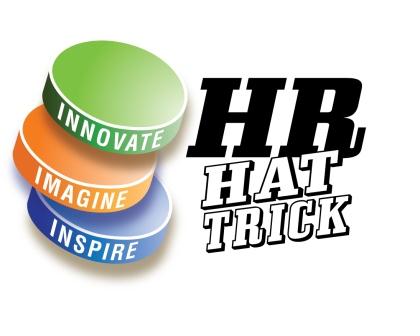Thank you for attending the NYS SHRM Conference session on Coaching Skills for HR Professionals. Here are the summary of slides from the session:
Coaching is: Partnering with a client to increase their awareness about current and possible beliefs and behaviors, then using that awareness to build a plan of action to achieve a desired goal. (You may be doing only parts of these at a time if working with people less formally.)
What is NOT Coaching?
- Mentoring/Advising
- Offering Solutions to Problems
- Consulting
- Therapy
- Succession/Career Planning
- Performance Review
- Training/Teaching
International Coach Federation Core Coaching Competencies
Setting the Foundation
1. Meeting Ethical Guidelines and Professional Standards
2. Establishing the Coaching Agreement
Co-creating the Relationship
3. Establishing Trust and Intimacy with the Client
4. Coaching Presence
Communicating Effectively
5. Active Listening
6. Powerful Questioning
7. Direct Communication
Facilitating Learning and Results
8. Creating Awareness
9. Designing Actions
10. Planning and Goal Setting
11. Managing Progress and Accountability
With Notes for HR Professionals:
Setting the Foundation
1. Meeting Ethical Guidelines and Professional Standards
* Confidentiality (if not, say so)
* Distinguishing coaching from other modalities
* Referring client to appropriate place as needed
2. Establishing the Coaching Agreement
* Agreeing on parameters of relationship
(esp. important with internal coaching)
Co-creating the Relationship
3. Establishing Trust and Intimacy with the Client
* Creates a safe and supportive environment
* Asks permission to coach in new or sensitive areas
4. Coaching Presence
* Open, flexible and confident
* Not getting hung up in client’s emotions
Communicating Effectively
5. Active Listening
* Attends to CLIENT agenda, not coach’s agenda
* Supports client in self-expression
6. Powerful Questioning
* Asks OPEN-ENDED questions that
Reflect understanding of client’s perspective
Look forward, Evoke discovery
Create clarity, insight, possibility
7. Direct Communication
* Uses respectful language
* Uses metaphor/analogy to illustrate
Facilitating Learning and Results
8. Creating Awareness
* Integrates multiple levels of listening
* Identifies for client their fixed way of perceiving the world, differences between facts/interpretations, disparities between thoughts, feelings and actions
* Communicates a broader perspective to the client and inspires commitment to shift their viewpoint and find new possibilities for action
9. Designing Actions
* Brainstorms with client actions to practice new learning and move toward goal
10. Planning and Goal Setting
* Establishes goals with client
* Creates a plan with attainable, measurable, specific results with target date (S.M.A.R.T. Goal)
* Identifies resources for learning
11. Managing Progress and Accountability
* Holds client accountable for what they say they’ll do
* Leaves responsibility with client to take action
A big way you can assist your employees is by coaching them to recognize the difference between the FACTS and their INTERPRETATIONS.
Example of How to INCREASE AWARENESS: The Ladder of Inference
Chris Argyris; Harvard Business Review
The Fifth Discipline by Peter Senge
Questions to help Client see/shift CONTEXT:
- Reflect the context you hear:
- Sounds like you see it as….
- Make sure they align that that’s their context
- Create understanding that that’s not the TRUTH and that they can choose their context
- How is that context limiting?
- How do you WANT it to go?
- What context would you need in order to get that?
- What can you do to practice that NEW context?
Coaching Pitfalls of HR Professionals
- Not being clear about what is coaching and what is some other HR function
- Not being clear on what is confidential coaching and what is for the employee’s HR file
- Giving their own answer/offering advice
- Running their own agenda vs. the client’s agenda
- Creating next steps without a larger framework
- Lack of follow-up/accountability
- Calling something coaching when it’s actually something else
- Moving to next steps/actions without deepening the awareness
Coaching Advantages of HR Professionals
You already:
- Love people
- See the best in people
- Are skilled at being a neutral, listening, safe space
- Are practiced at holding confidentiality
- Hold a bigger picture than an individual employee
- Have experience with project management and holding people accountable
- Have vast experience and knowledge to draw on for resources
Resources
- Co-Active Coaching by Whitworth & Kimsey-House
- The Last Word on Power by Tracy Goss
- Immunity to Change by Kegan & Lahey
- International Coach Federation (ICF): coachfederation.org
- Maren.Perry@ArdenCoaching.com
- ArdenCoaching.com/blog

